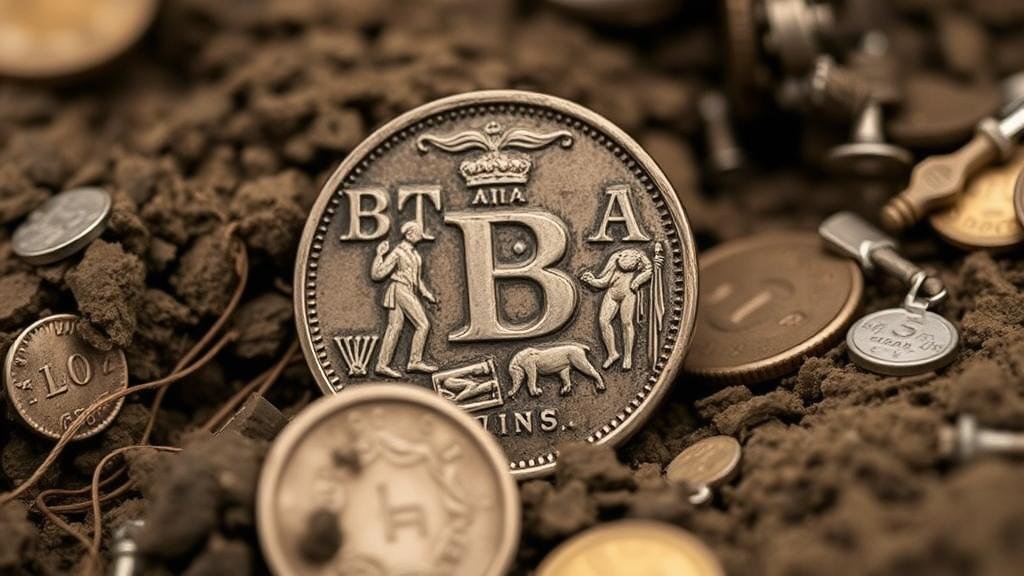Unearthing Coins From Historic Battlefields and Encampments
Unearthing Coins From Historic Battlefields and Encampments
The discovery of coins on historic battlefields and encampments provides invaluable insights into the economic, social, and military aspects of the past. These artifacts can tell stories that written records often overlook, revealing aspects of daily life, trade, and even the morale of soldiers. This article delves into the methodologies employed in unearthing these coins, the historical significance they hold, and the ethical considerations surrounding their excavation.
The Importance of Coins in Historical Archaeology
Coins are not merely currency; they are historical documents that provide information about different eras, cultures, and economies. can indicate the following:
- Trade Relationships: Coins can signal the extent of trade networks. For example, the presence of Roman denarii in Britain illustrates the reach of the Roman Empire and its monetary influence.
- Military Logistics: The types and quantities of coins found often relate to provisioning and the economic conditions during specific battles or sieges. This can be explored through finds at sites like Gettysburg.
- Societal Structures: Coins can inform us about class systems, as different denominations were often associated with different classes of society.
Methodologies for Excavation
Excavating coins from battlefields and encampments requires a strategic approach to ensure preservation and documentation. Several methodologies are employed:
- Ground Penetrating Radar (GPR): This non-invasive technique helps to detect buried coins and other artifacts without disturbing the soil. GPR has been effectively used in sites like Waterloo.
- Stratigraphic Excavation: Archaeologists carefully excavate layers of soil, recording the context in which coins were found. This stratification can provide insights into chronological sequences, as seen in the excavation of the Civil War encampments.
Case Studies
Several significant case studies demonstrate the valuable information obtained through the excavation of coins on battlefields:
- The Battle of Gettysburg: Excavations revealed not only military artifacts but also a plethora of coins, including period-specific tokens. e finds offered insights into the economic conditions of the Union and Confederate armies during the campaign.
- The Spanish-American War: At the excavation site of San Juan Hill, coins from various countries were unearthed, indicating the multicultural aspects of the military and trade networks influencing the troops and local populace.
Ethical Considerations in Unearthing Coins
The excavation of coins from historic sites raises ethical considerations that must be addressed. Some crucial points include:
- Preservation of Context: Extracting coins without proper archaeological context can lead to the loss of critical historical information.
- Legal Regulations: Many countries have strict regulations regarding site excavations. Adhering to these laws ensures the integrity of historical research.
- Public Engagement: Involving local communities in the excavation process helps foster a sense of ownership and responsibility towards preserving cultural heritage.
Real-World Applications
The knowledge gained from unearthing coins extends beyond academic research. It can influence modern culture in several ways:
- Educational Programs: Museums and educational institutions use these finds to create programs that enhance public understanding of history.
- Reenactments and Historical Tourism: Sites with significant coin finds often become popular destinations, providing economic benefits to local communities.
Conclusion
Unearthing coins from historic battlefields and encampments is a complex process that intertwines methodologies, ethical responsibilities, and historical narratives. These coins serve as tangible links to our past, enriching our understanding of socioeconomic dynamics and military logistics. By examining these artifacts, historians and archaeologists can piece together a more comprehensive narrative of historical events. It is essential to proceed with respect and ethical considerations to ensure that future generations can also benefit from these profound connections to history.



